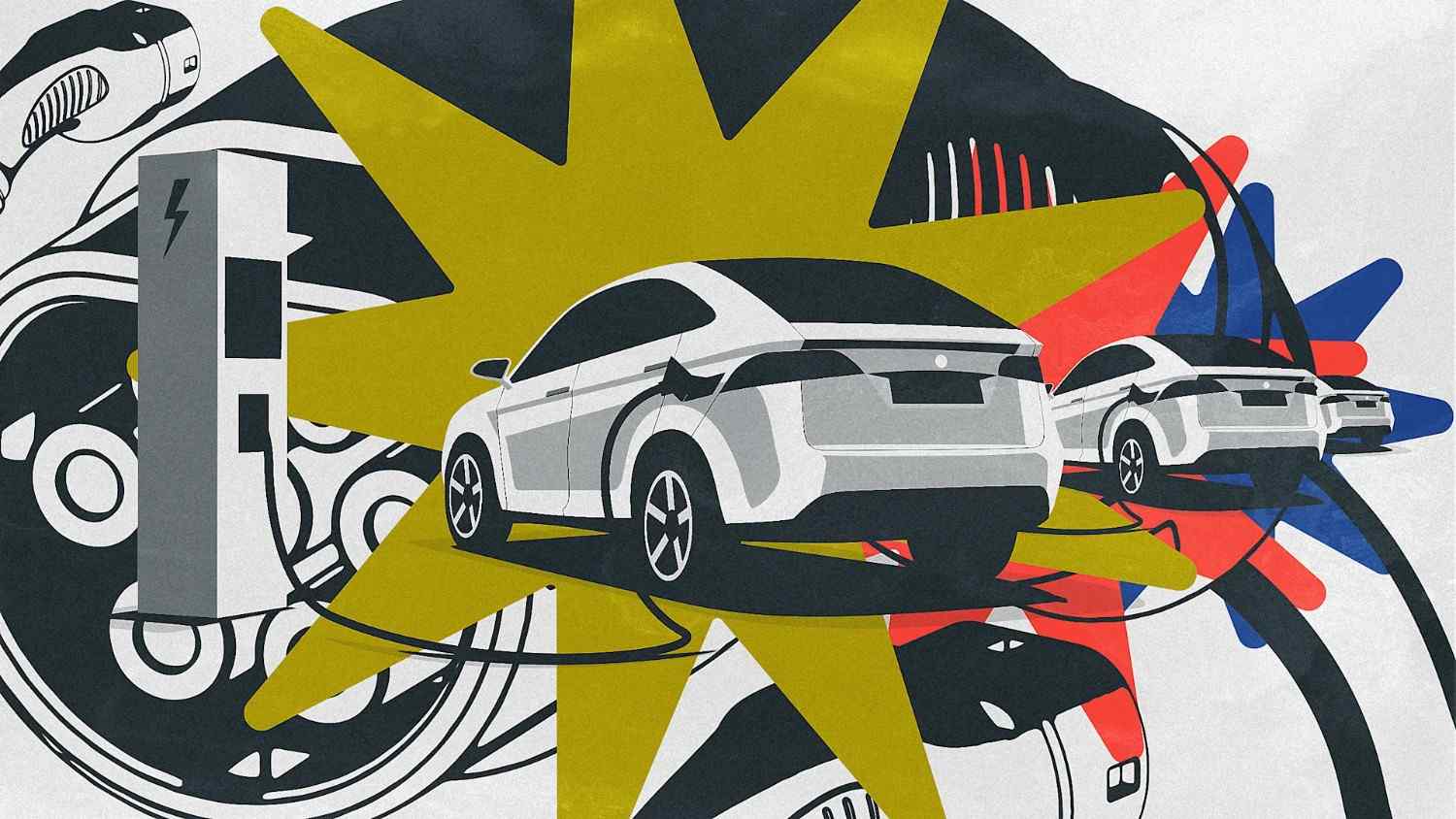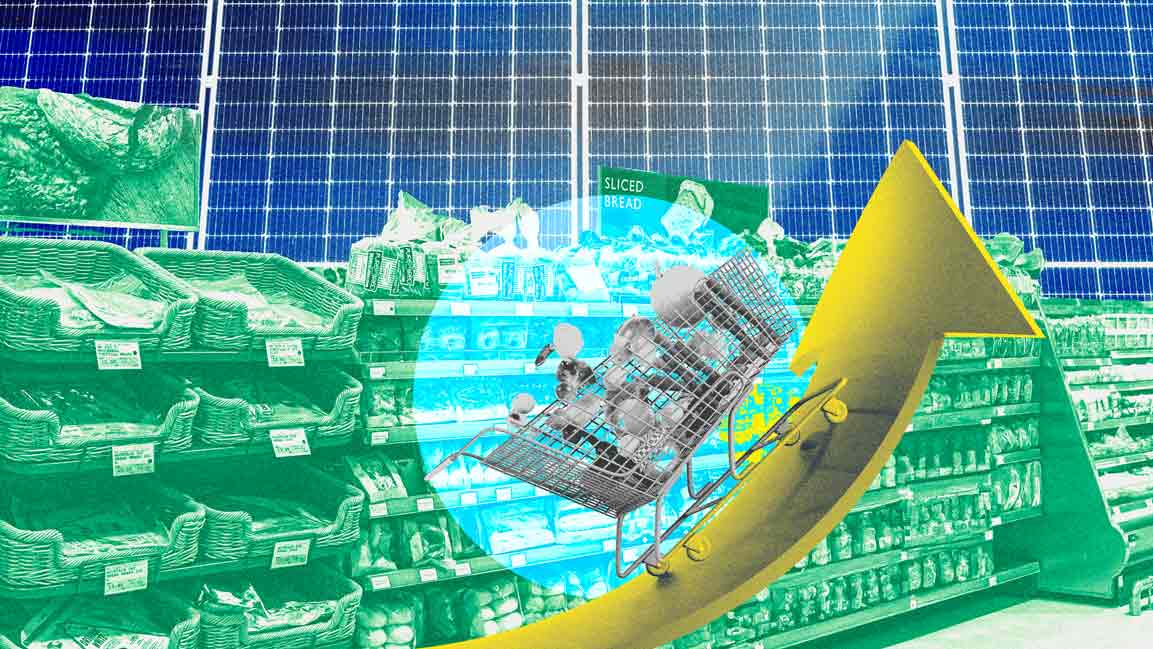- | 9:00 am
Why are green startups still struggling to attract investments?
Green startups are paving the way to tackle environmental challenges, but the road ahead is far from easy.

With sustainability becoming a much-used buzzword in the region, entrepreneurs are increasingly launching green startups. From tackling environmental challenges to combating the effects of climate change, they are creating innovative technologies and products while also improving business value.
Despite their commitment to sustainable goals, however, green startups in the region often struggle to attract investments.
Last year, most of the funding went to fintech, logistics, and e-commerce startups, receiving a total of $4.4 billion in VC capital, according to data platform Magnitt.
Nuwater, a UAE startup providing a recyclable alternative to single-use plastic bottles, is eager to put a dent in the region’s recycling initiatives but is experiencing fundraising challenges.
“Getting the first investor we’re finding is quite tricky, especially because of the state of the market right now,” says Cyrus Alavi, co-founder of Nuwater. “There haven’t been enough exits in this space, and because of that, investors want to go for something they believe is a safe investment.”
DOING GOOD WHILE DOING BUSINESS
Unlike other startups, green startups often have the added responsibility of sustainably delivering environmentally friendly and socially responsible products or services. While this approach may make for sound business practice, it is not necessarily more profitable.
Sustainable options tend to be more expensive than other alternatives. Kris Barber, founder of Dgrade, a UAE-based company that makes clothes from plastic bottles, states that creating products from recycled material is costly. “When you consider the plastic bottle is 99% air, you have to bale it and compact it before it gets to the plant,” he says. “And then you have all sorts of contamination in the process that must be removed. The output material must be at a level where it is perfectly hygienic.”
What’s more, customers sometimes do not see the value of paying more for recycled products, tempting them to look elsewhere and seek other alternatives. “The fact that any recycled material is going to be by default more expensive than conventional material, people in this region tend to think that it should be cheaper because it’s been used before,” Barber adds.
Barber is one of many entrepreneurs with high costs for running his business. Sabrina Vettori, co-founder of Edama Solutions, a Saudi startup that recycles organic waste into agricultural products, believes sustainable startups can be more capital-intensive, particularly if they have heavy assets and operate in manufacturing or recycling.
“I think the major difference is that if you are developing an e-commerce platform, then your CapEx investment is significantly lower than required to develop major infrastructure projects like ours,” she says. “This represents a barrier, especially when combined with all the uncertainties that characterize a startup.”
BECOMING INVESTIBLE
While turning an impactful startup into a profitable business varies from one industry to another and depends on a wide range of factors — product, business model, geography — green startups must find ways to make sustainability work to attract investments.
Hassan Mansi, Head of Ecosystem Development at Flat6Labs, MENA’s leading seed and early-stage venture capital firm, adds that the key to attracting investments as a startup, regardless of sector, is to be investible. From having the right team and a good product-market fit to developing a scalable product, founders must demonstrate that their startup is viable.
“At the end of the day, it’s an investment,” he says. “The investor just wants to get in the investment to exit while making revenues out of it and, of course, impact.”
While such criteria may be true for most startups, green startups are responsible for measuring impact. They have to show that they’re contributing to their given goals, whether reducing emissions, recycling plastic waste, or saving tons of food, amongst other objectives.
“We spend a lot of time working on frameworks for startups for their impact measurement and management; that’s an additional layer to our due diligence and post-investment work,” says Lola Fernandez, Senior Investment Associate at VentureSouq, a MENA-based VC firm focusing on fintech and climate tech.
“Because you not only have to measure the potential impact of the technology, but you’re also ensuring that they’re addressing the climate problem, and have a set list of KPIs you can revert throughout the product and fundraising cycles, and ensure alignment through the exit.”
LOOKING FOR ALTERNATIVES
With MENA recording a little over $7 million in investments in April this year, a 99% decrease compared to last year, according to Wamda, entrepreneurs are forced to look beyond VC funding to ensure the sustainability of their business.
One such alternative is partnerships. The Waste Lab, a UAE-based startup that offers onsite and off-site composting to B2C and B2B customers, recently partnered with Kia on a campaign to raise awareness on food waste, composting, regenerative agriculture, and zero-waste cooking.
“Partnerships and collaborations with other businesses and organizations are key for impact-driven startups,” says Lara Hussein, co-founder of The Waste Lab. “Even though they do not translate into direct funding, they do support in terms of exposure, extending our services to their network, co-working on campaigns, and covering our operational costs where applicable.”
Starts can also stay afloat by diversifying their revenue streams and focusing on generating profit. This helps sustain a startup during tough times and improves investor confidence and the ability to secure funding in the future.
Shamsina, an Egyptian startup that provides affordable rooftop solar-powered water heaters to underserved communities, is leveraging multiple revenue streams to run its business. From using sale proceeds, grants, and donor funding to leveraging partnership opportunities, it can align its mission with sound business practices.
“Our hybrid business model allows us to generate revenue while also supporting our mission of providing affordable, sustainable energy solutions to underserved communities,” says Sarah Mousa, co-founder of Shamsina.
CATCHING UP
While green startups may face challenges, the region seems slowly catching up.
Initiatives like Access Sharjah Challenge (ACS), developed by the Sharjah Entrepreneurship Center and endorsed by the UAE Ministry of Climate Change and Environment (MoCCAE), are helping bring sustainability to the forefront by offering entrepreneurs an opportunity to implement their innovative and sustainable solutions in Sharjah.
This year, the UAE is also gearing up to host COP28, paving the way for more green startups to unleash their sustainable innovations and solutions. “As the UAE prepares to host COP28 this year, we believe conscious entrepreneurs can act as change agents and support us in addressing challenges, mobilizing new resources, and inspiring greater contributions to the national agenda for sustainable development,” says Khaled Al Huraimel, Group CEO at Beeah Group, an organization dedicated to sustainability in the MENA region.
The more awareness there is of sustainability, the more likely investments will start trickling in. Fernandez from VentureSouq adds that the region tends to follow global trends, and climate tech is gaining traction globally.
In 2022, funding in climate tech reached almost $82 billion, up 19.4% from 2021, according to data by Net0 Insights. “We believe that this is one of the largest opportunities in the next decade to generate an immense amount of value and returns,” she says.
As the tide begins to turn ever so slightly towards sustainability, green startups — more than ever — have the opportunity to flourish and create an impact in one of the world’s most vulnerable regions to climate change, the Middle East.







































